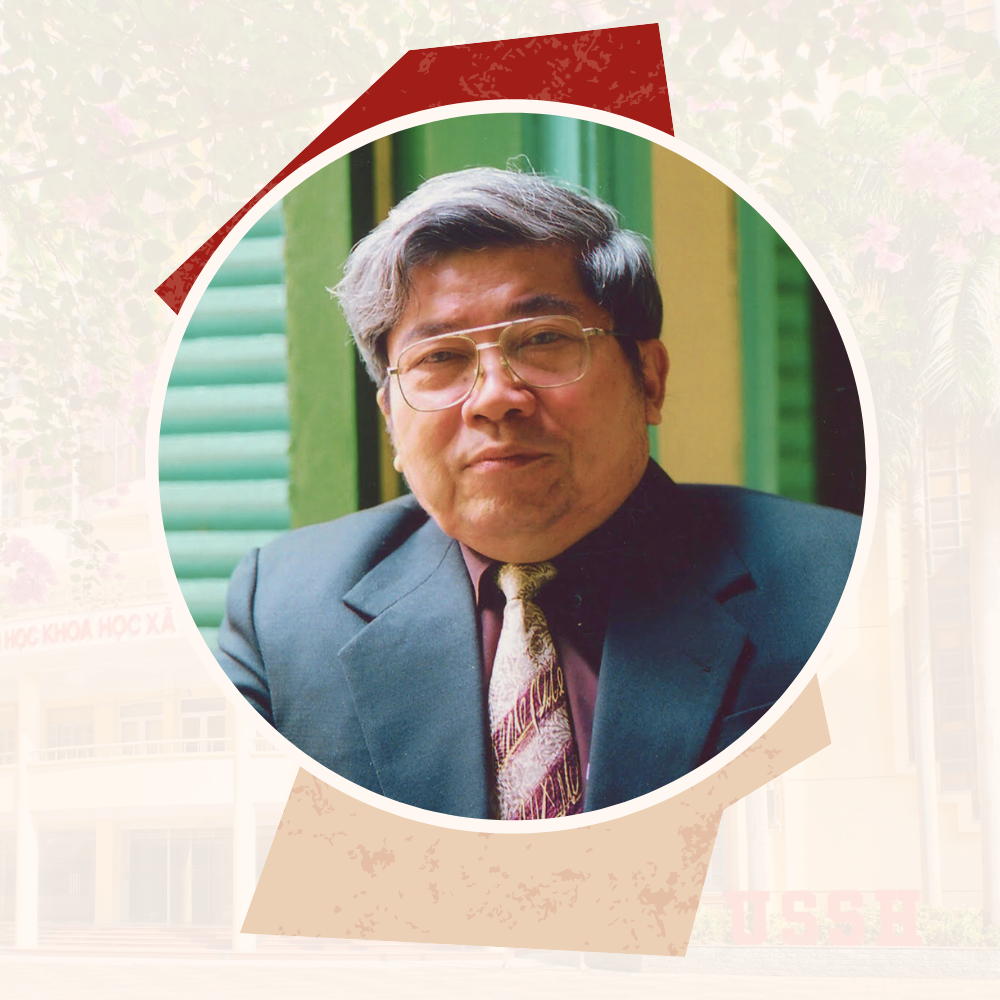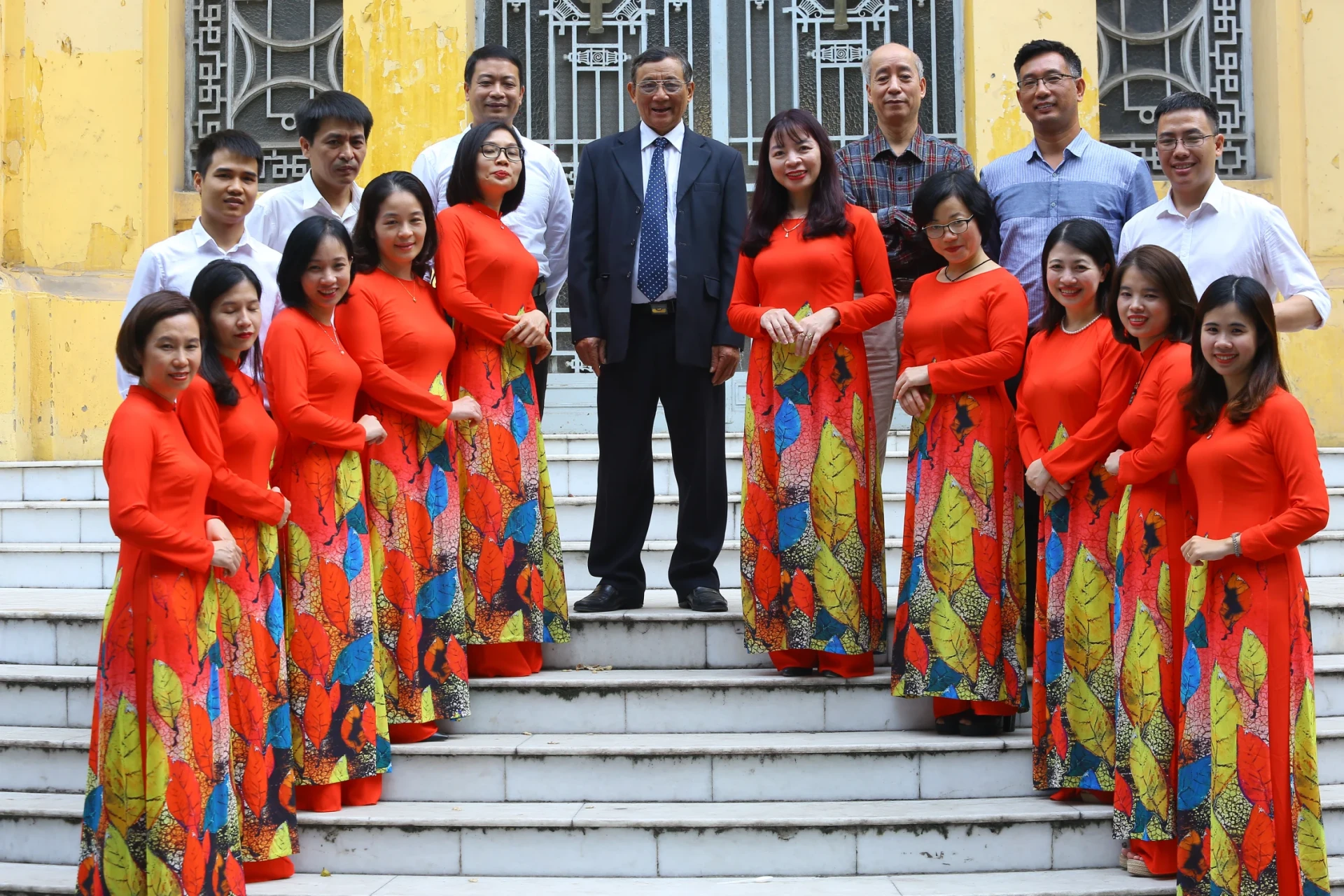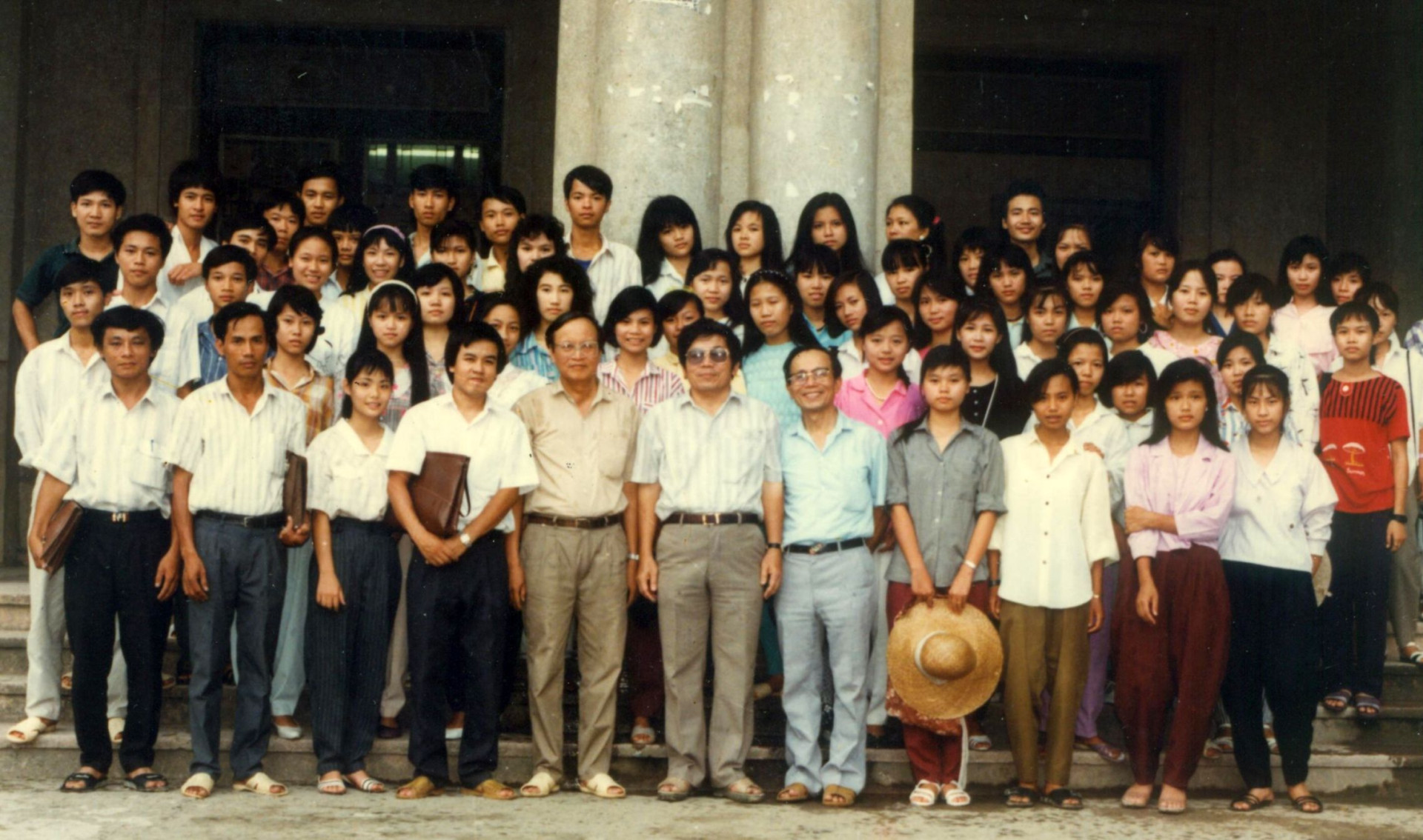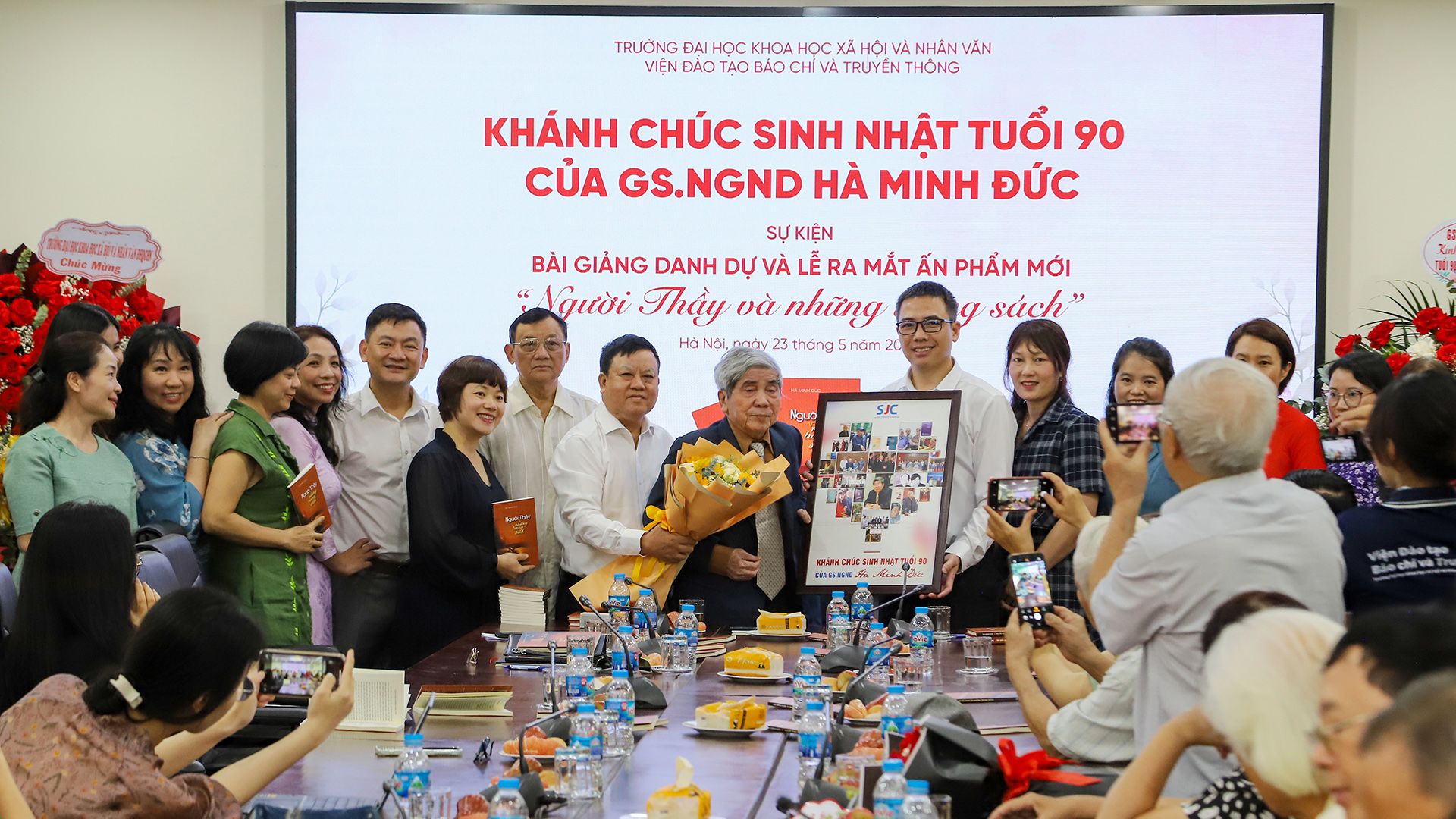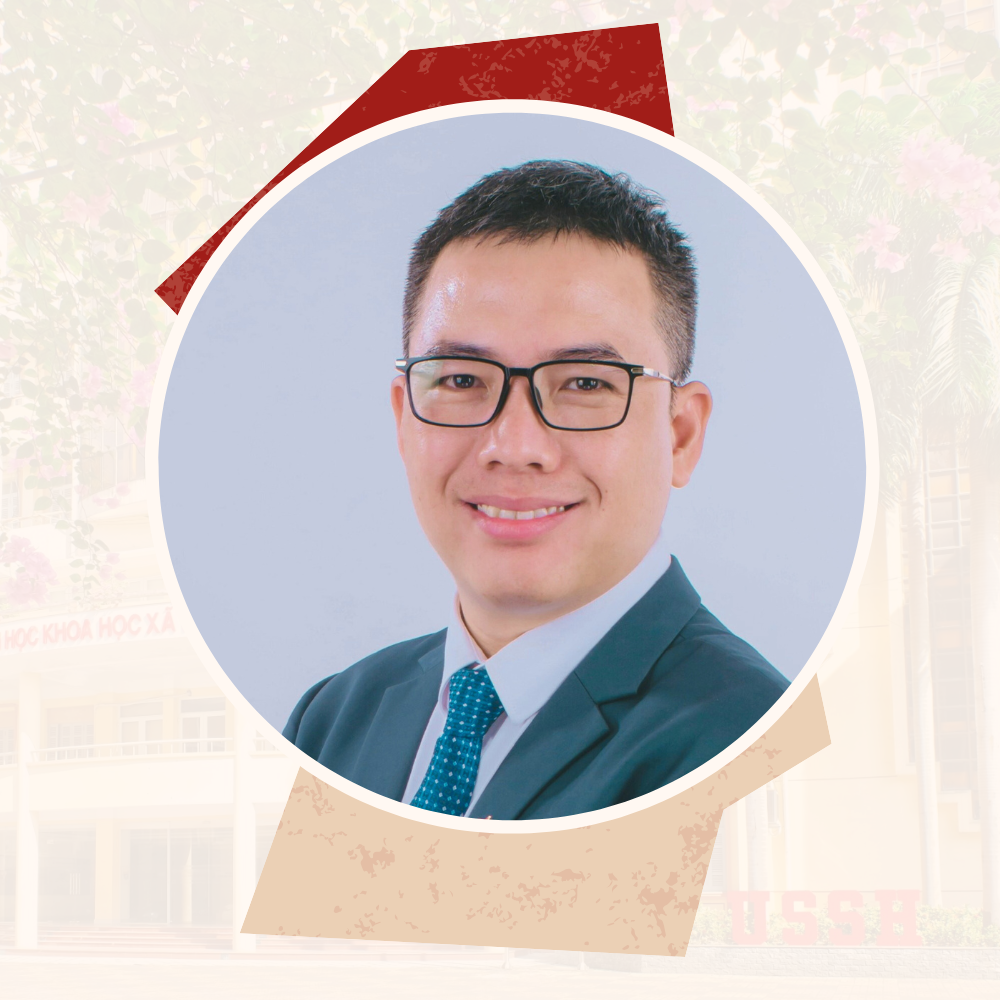Vietnam's leading journalism and media training institution.
In 1990, the Faculty of Journalism at Hanoi University, the predecessor of the current Institute of Journalism and Communication Training, was established, marking the birth of the first journalism training unit in Vietnam not affiliated with the Party school system. This was also a significant turning point in the history of Vietnamese journalism education, as the training and research in journalism and communication were placed within a leading university in the social sciences and humanities.
Professor Ha Minh Duc, the first Head of the Faculty of Journalism (University of Hanoi).
Over 35 years of establishment and development, the Institute of Journalism and Communication Training has trained more than 30,000 full-time and part-time bachelor's degree holders, and over 1,000 master's and doctoral degree holders, contributing to providing high-quality human resources for Vietnam's journalism and communication industry. Many former students of the Institute currently hold important positions in press agencies, media organizations, and information management agencies at the central and local levels. Hundreds of former students have won national journalism awards and specialized journalism awards at various levels.
Currently, the Institute offers six full-time training programs, including: Bachelor of Journalism, Bachelor of Public Relations, Bachelor of Multimedia Communication, Master of Journalism, Master of Journalism and Communication Management, and Doctor of Journalism. In addition, the Institute also organizes short-term courses, second degree programs, and part-time training programs to meet the diverse needs of society.
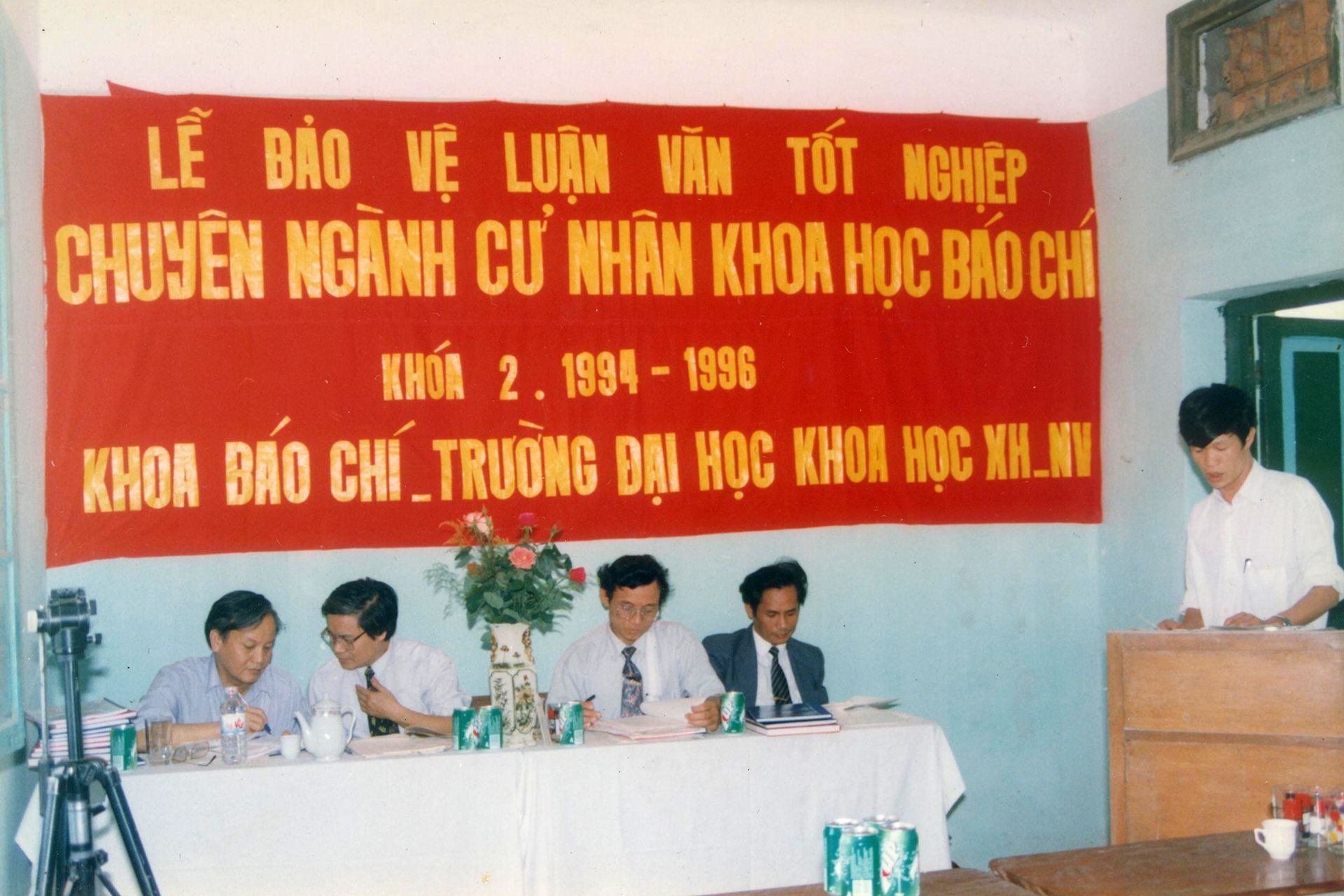
A thesis defense session for students of the Journalism Faculty, former University of Hanoi. (Photo courtesy of SJC)
A highlight of the Institute's training activities is the harmonious combination of theory and practice. The Institute is equipped with a modern and comprehensive system of facilities and training equipment, and maintains close ties with domestic news agencies and media outlets, allowing students to practice their profession even while still in university. The Institute is also the first journalism training institution to apply the credit-based training model in Vietnam.
The Institute's educational philosophy is "Dynamic - Creative - Humanistic - Integrity." This philosophy has become the guiding principle in all teaching, training, research, and collaboration activities. The Institute always aims to train journalists and media professionals with independent thinking, critical thinking skills, and strong professional abilities, while upholding professional ethics and a high sense of social responsibility.
In addition to training, the Institute also focuses on in-depth research in journalism and media.
Pioneering innovation in the context of digital transformation and international integration.
In the context of the rapidly changing global journalism and media landscape driven by digital technology, the Institute of Journalism and Communication Training has been proactively adapting and comprehensively innovating its training programs, teaching methods, and development orientation.
The Institute was one of the first institutions in Vietnam to offer a research-oriented Master's program in Journalism (1997), later expanding to offer an application-oriented Master's program (2017), and was the first in Vietnam to develop a Master's program in Journalism and Communication Management (2018).
Students from the Faculty of Journalism (Hanoi University) with Professor Ha Minh Duc on a field trip. (Photo courtesy)
In the near future, the Bachelor of Multimedia Communication, Digital Communication program (2025) will be officially launched, reflecting the agility in approaching new trends such as digital communication, big data, AI, social networks and creative digital content.
The Institute's teaching staff is constantly being strengthened and improved in quality. The majority of the Institute's lecturers received formal training in countries with developed journalism such as the Soviet Union, the United Kingdom, Australia, South Korea, Russia, and China. In addition, there is a team of part-time lecturers, including reputable journalists and media experts with practical experience at leading media organizations in Vietnam.
The Institute of Journalism and Communication Training is also a leading center for journalism and communication research in the country, with hundreds of scientific articles, research projects at the national, ministerial, and VNU levels, and dozens of national and international scientific conferences organized. The Institute also compiles and publishes many textbooks, lectures, and specialized books used in journalism and communication training in Vietnam, notably the textbook on Journalism and Communication Theory, the textbook on Journalism Language, a series of textbooks on journalistic genres, textbooks on types of journalism and communication, the book "Journalism and Communication: Key Issues," "Digital Transformation of Vietnamese Journalism," "Vietnamese Television Post-Renovation," "Digital Convergence in Journalism and Communication – Vietnamese and International Approaches," etc. Among these are books published by prestigious international publishers such as Routledge (UK) and Nomos (Germany).
In the field of international cooperation, the Institute has established relationships with many prestigious journalism training institutions such as Stirling University, Bournemouth University (UK), University of Southern California (USA), Communication University of China, Renmin University of China, Xiamen University (China)... and organizations such as Reuters, AFP, the British Council, the Konrad Adenauer Institute (Germany)... The Institute serves as a liaison for journalism training schools in the region and internationally, and is gradually implementing student and faculty exchanges and mutual recognition of training credits.
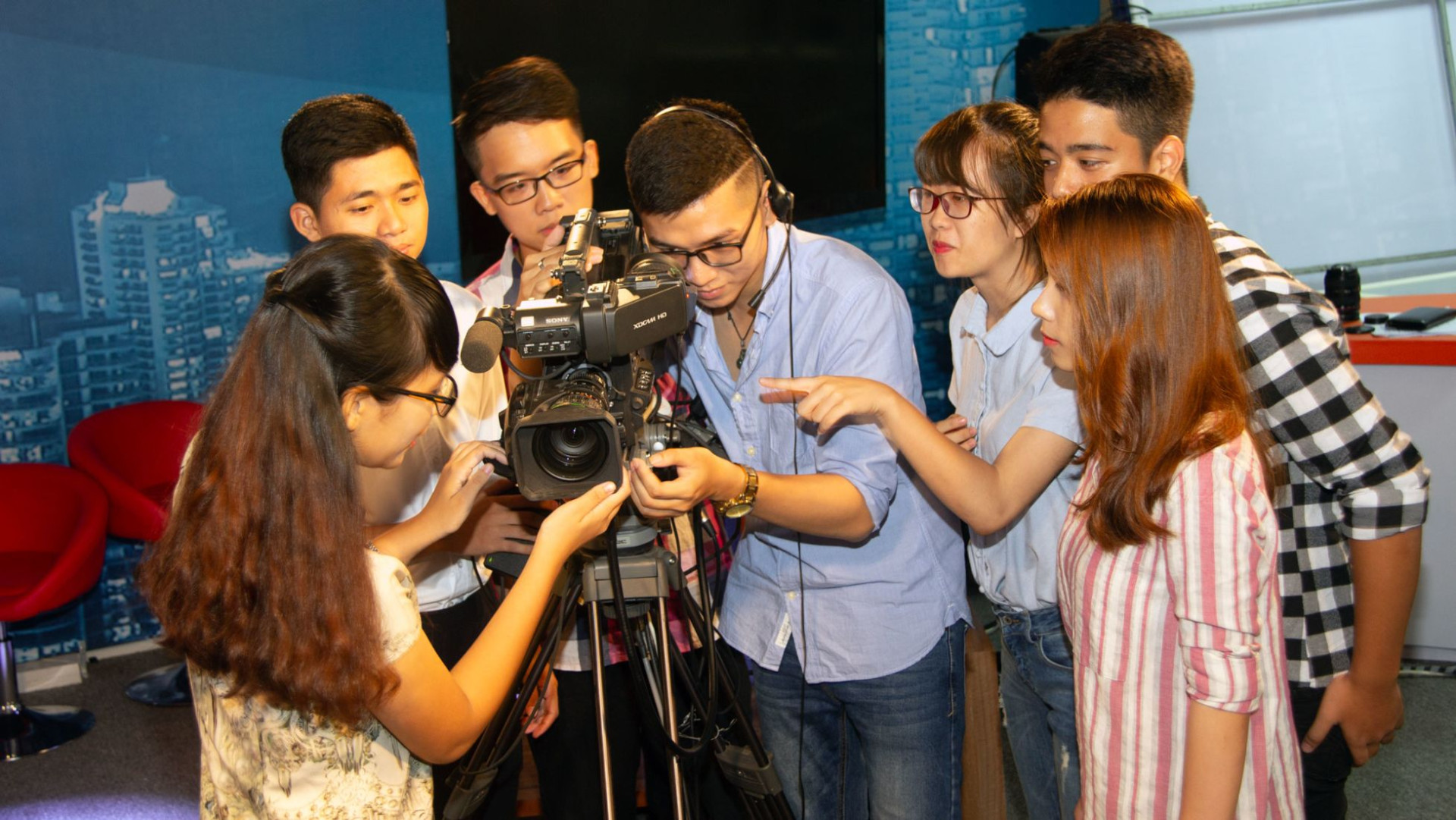
Students of the Institute of Journalism and Communication Training during a practical session. (Photo courtesy of SJC)
In 2024, through the collaboration of the Institute of Journalism and Communication Training and the University of Social Sciences and Humanities (Vietnam National University, Hanoi), the "Vietnam-China Journalism Training Dialogue" program took place in Beijing, with the participation of all universities offering journalism programs in both countries. This forum marked the first time a new, systematic level of cooperation and exchange on journalism and communication training has been established in Vietnam.
The Institute also regularly organizes major academic forums such as the "June Press Forum" on the occasion of the anniversary of Vietnam's Revolutionary Press Day. In 2024, the international conference "Vietnam's Media Economics in the Context of the Digital Economy" brought together more than 50 papers, including delegates from Germany, China, Thailand, etc., affirming the Institute's pivotal academic role in the industry.
Thirty-five years is a journey of effort and creativity for the Institute of Journalism and Communication Training. With a solid foundation and strategic vision, the Institute is steadily progressing in its mission to train a generation of journalists and communicators who are courageous, humane, and modern, meeting the increasingly high demands of the information society and international integration.
Staying true to the "brand" of General Journalism – Humanistic Communication.
Throughout its 35 years of development, the Institute of Journalism and Communication Training has established a distinct academic positioning: the "Comprehensive Journalism - Humanistic Communication" model, stemming from a profound educational perspective: journalists and communicators not only need skills but, first and foremost, must be equipped with a broad knowledge base, sharp critical thinking, and a deep humanistic spirit. This has been the consistent direction of the Institute since its inception as the Faculty of Journalism at Hanoi University and later as the Faculty of Journalism and Communication at the University of Social Sciences and Humanities (Vietnam National University, Hanoi).
The event "Honorary Lecture" and the launch of the book "The Teacher and the Pages of Books" by Professor, People's Teacher Ha Minh Duc was organized by Institute of Journalism and Communication Training organize day May 23, 2025. (Photo by Huu Toan)
The Institute recognizes that, in the information age, journalists cannot simply be data collectors and transmitters; they need to become deeply knowledgeable about the social, political, and cultural context, so that they can responsibly select, process, and transmit information, contributing to the creation of a positive social discourse. Therefore, the Institute's training programs always emphasize foundational subjects such as philosophy, sociology, media psychology, history of journalism, journalism and media theory, popular culture, along with courses on journalistic ethics and the social responsibility of the media.
However, this does not mean that professional skills should be underestimated. On the contrary, skills are always systematically trained, but not detached from academic values and a humanistic spirit. Practical subjects such as modern journalism writing skills, broadcasting technology, multimedia applications, and journalistic and media production are all placed on a solid theoretical foundation and guided by critical thinking and a clear social awareness.
"In the information age, journalists cannot simply be data collectors and transmitters; they need to become deeply knowledgeable about the social, political, and cultural context, so that they can select, process, and transmit information responsibly, contributing to the creation of a positive social discourse."
|
Dr. Phan Van Kien, Director of the Institute of Journalism and Communication Training
|
In the rapidly changing landscape of digital media, the Institute of Journalism and Communication Training remains committed to its "integrative and humanistic" philosophy, but without being conservative. On the contrary, the Institute continuously updates its practical and specialized courses with new media technologies such as artificial intelligence (AI), big data analytics, and multi-platform digital content production. This helps students not only master technology but also develop the ability to choose tools that align with their communication goals and professional values.
Practice has proven the effectiveness and sustainability of this model. Many generations of the Institute's students, whether working in mainstream media organizations, digital media companies, or independently as YouTubers, podcasters, or influencers, have maintained their professional identity: sharp thinking, integrity in conduct, and humanistic content creation. They have contributed to building the Institute's "brand"—a brand not only associated with academic reputation but also a guarantee of human quality in modern journalism and media.
